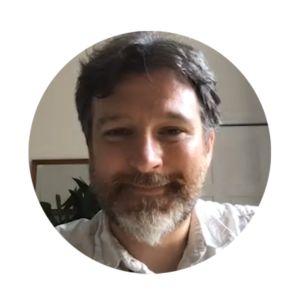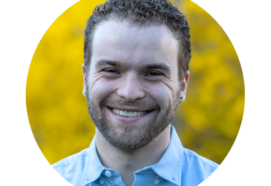Dr. Sarah Parry & Dr. Filippo Varese give a video abstract on their paper
First published: 11 July 2020.
This paper will be discussed at the January 2021 FREE virtual journal club ‘CAMHS around the campfire’ do please sign up. Plus there is a research digest of the paper, and a more expansive 30 podcast with Dr. Sarah Parry on the topic.
Subscribe to the ACAMH YouTube Channel to be the first to see video abstracts and free lectures

Dr. Sarah Parry is a Clinical Psychologist and Practice Fellow with experience of working in a range of NHS and private sector organisations. Sarah principally works in the field of trauma and children’s mental health. Research interests include therapeutic uses of formulation and the therapeutic utility of compassion for clients and practitioners alike. Sarah and her colleagues also explore how interpersonal trauma can impact aspects of people’s lives, and how adults and young people develop coping strategies in response to traumatic experiences. Sarah’s research has been published in a range of peer-reviewed journals, including the Journal of Children’s Services, the Journal of Child Sexual Abuse, and the Journal of Trauma and Dissociation. Biog via Manchester Metropolitan University

Dr. Filippo Varese is a Clinical Senior Lecturer in Psychology, and a HCPC registered clinical psychologist. He is the Director of the Complex Trauma and Resilience Research Unit (C-TRU), a collaboration between the University of Manchester and Greater Manchester Mental Health NHS Foundation Trust aiming to improve understanding and clinical innovation of trauma, complex trauma and related mental health needs in the NHS. His research interests focus include the psychological and cognitive underpinnings of psychotic experiences in non-clinical and clinical populations; the impact of adverse life experiences on severe mental difficulties, and the psychological mechanisms that might account for these associations; the development and evaluation of psychosocial interventions for psychosis/severe mental health problems and trauma-related difficulties, including trauma-focused and trauma-informed approaches. He also leads several research projects funded by the National Institute for Health Research, and supervises PhD students funded through competitive funding schemes, including ESRC and MRC doctoral training partnerships and University of Manchester Research Impact Scholarship awards.
Transcript
SARAH PARRY: This is you and I, Sarah and Fillipo, recording the video abstract for Whispers, echoes, friends and fears: forms and functions of voice‐hearing in adolescence, which is our new paper out in Child and Adolescent Mental Health. What were some of your favourite things about the study?
FILIPPO VARESE: I suppose in terms of the favourite things about this study, there are so many. I suppose the first aspect is about actually the focus on the functional aspect of voices and the positive aspect of these unusual experiences in young people, which is often a neglected narrative, I would say. The second aspect, I suppose, that I really enjoyed is the very, I would say, innovative way in which we have engaged our target population, basically, which is using online media, which is quite… Yes, it was an interesting journey, I would say.
SARAH PARRY It was, it was. It was quite a slow start, wasn’t it to recruiting participants, and so helpful when we had support from people on social media who had quite a large following and presence who could help us promote things. But I think as well, it was really nice in the feedback that we got about the study from participants, the number of people who just said, it had been a really nice thing to do, and I actually added a couple of the quotes from participants about their experiences of doing the study in the message section. So I think whilst it took us a little bit of time to work out the best way to reach young people, it seemed to have been really well received at the end.
I think one of the other really nice things that we were able to do through the qualitative aspect of this study was just to really capture some of the young people’s words around their experiences, which was why it was so nice for the journal to let us include those in the title because those words around voices being whispers and echoes of the past, and sometimes friends, sometimes quite scary, I think that really captures the breadth of experiences that we heard from as well.
FILIPPO VARESE: Absolutely, yes. I suppose going back again to the methodology we used to reach out to young people who hear voices, I think it’s quite actually striking how indeed, it was a slow start, but we actually recruited a quite large number of people, especially for a qualitative study. And this is quite different from studies that we’ve tried to do in terms of actually recruiting children who hear voices, face to face through services, which actually they are quite difficult to find in some way. So perhaps that’s something quite interesting in terms of thinking about how to go about future research on this group. Definitely online media should be something to consider.
SARAH PARRY: Absolutely. And I think that was really helpful in terms of us reaching the younger age groups, 13, 14, 15 year olds who have been largely neglected, really, in terms of voice hearing research. And I wonder if perhaps our inclusion of young people from the community who’d perhaps never contacted mental health services, was perhaps one of the reasons why we found that the average age of voices beginning was only nine years and five months, which is a little younger than perhaps we’d expected really.
FILIPPO VARESE: Yes. I suppose another aspect that really helped is the completely, I would say, transdiagnostic but also normalising approach that we tried to use whenever looking at the experience of hearing voices in young people. So we know that hearing voices is a phenomena that is not specific to any particular kind of clinical group, despite the fact that it is stereotypically linked in people’s mind to the diagnosis of schizophrenia and severe mental health difficulties. And the approach we’ve taken is actually in line with the idea actually, that this is a relatively common human experience that is distressing, perhaps just in a minority of individuals and under specific circumstances. And actually the experiences that our participants told us about in this study very much confirm and are in line with this perspective.
SARAH PARRY: Yes, absolutely. And I think that was really interesting looking at it from that, what’s the form of voices and the function of voices, in that quite categorical way because there’s clearly this, albeit smaller group of young people, who feel as though they have a lot of control and influence over their voices, those voices are very much, almost friends. There’s a reciprocal relationship; it’s not just an auditory experience; they have meaningful relationships with the voices that they hear. They seem to embody a lot more than perhaps the term hearing voices suggests. And it was really interesting as well, I think, hearing from so many of the participants who had very mixed experiences, young people who actually really enjoyed and valued their voices, and then perhaps only became more anxious when grownups around them were perhaps a little concerned. And I think really interesting that that seemed to influence the nature of the voices as well. It goes to show just how important it is for people around a young person to support them emotionally and to reduce some of those stresses and to take that more curious, normalising approach.
FILIPPO VARESE: What do you think about perhaps the implication for future research in terms of unusual experiences in young people? So based on a little bit of the findings and complex narratives of our participants, what do you think, is the next thing to do?
SARAH PARRY: Yes, I think that’s where it gets really interesting because I think what some of our participants showed was that, for some young children, the best thing we can do is to be accepting and curious and value their experience, and just let them enjoy it. We don’t actually need to intervene. For some of our participants the intervention seemed actually to be more problematic than the experiences that they were having with their voices. It was also really interesting, I think, to hear from some of the young people who had quite powerful visions or smells associated with their voices. It would be great to know a bit more about that, and how that can be, and change over time for a young person as they move through childhood and adolescence into adulthood.
But I think one of the other things as well was just to recognise that relational aspect for a lot of young people who hear voices. It’s been, I think, really encouraging to see some really good outcomes from some of the researchers and practitioners that have been employing relational therapies with young people who hear voices. I think it’d be great to see a little bit more about that over time.
FILIPPO VARESE: Yes, so plenty of work to do still.
SARAH PARRY: Plenty of work to do, but I think this study was really encouraging in terms of showing how much young people have to say about their experiences, how amazingly articulate they are about their experiences, and how much they want to get involved, so that was really good.
FILIPPO VARESE: Yes, absolutely. And the articulate aspect is another, I think, important aspect to highlight about this research. Something we were a little bit concerned at the beginning of the project was about whether young people were going to actually describe their experiences in sufficient detail in an online qualitative survey to allow us to do a rich analysis, basically. And well, it turned out that that’s very much the case. They actually…
SARAH PARRY: Yes.
FILIPPO VARESE: … engage and describe and…
SARAH PARRY: Yes, we just were so fortunate weren’t we to have such incredible data. I think it just goes to show where young people need to be at the centre of this kind of research and leading us really, so yes, that was great. And I think, as well, having that quite narrative approach to asking questions, I think that’s what quite a few of the young people commented on that they enjoyed. I remember one comment really sticks out in my mind that one of the girls that took part just said it was really nice to just have reflective questions asked about her experiences, and just to write them down. So yes, I’m really pleased we took that approach and I’m glad it was it was so well received as well. So I think that probably takes us to the end of our video abstract. So we’ll pause there.



